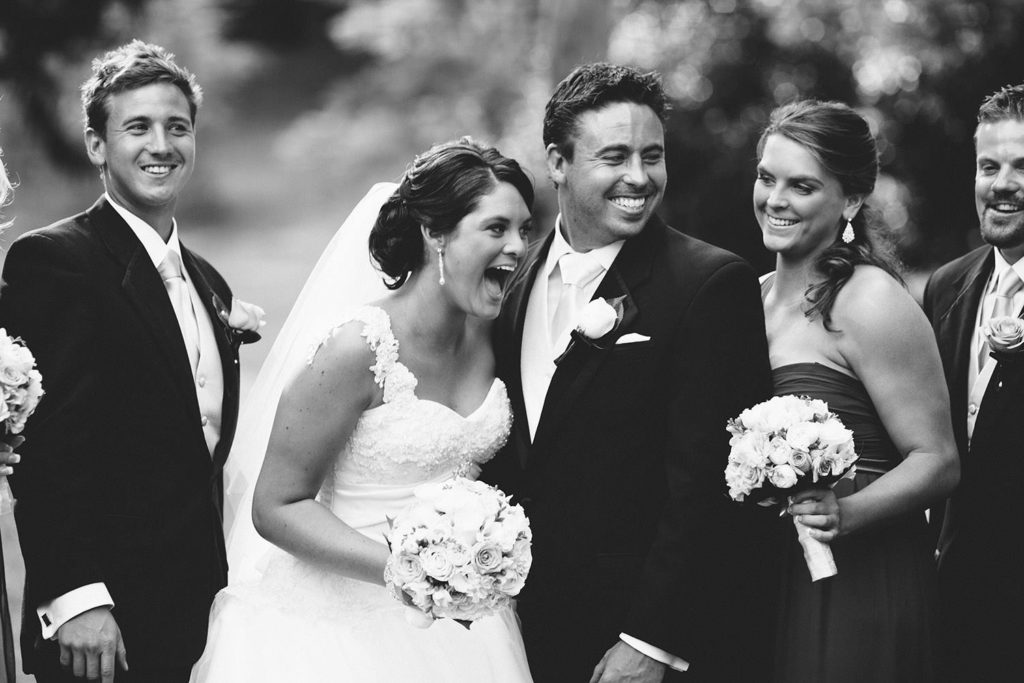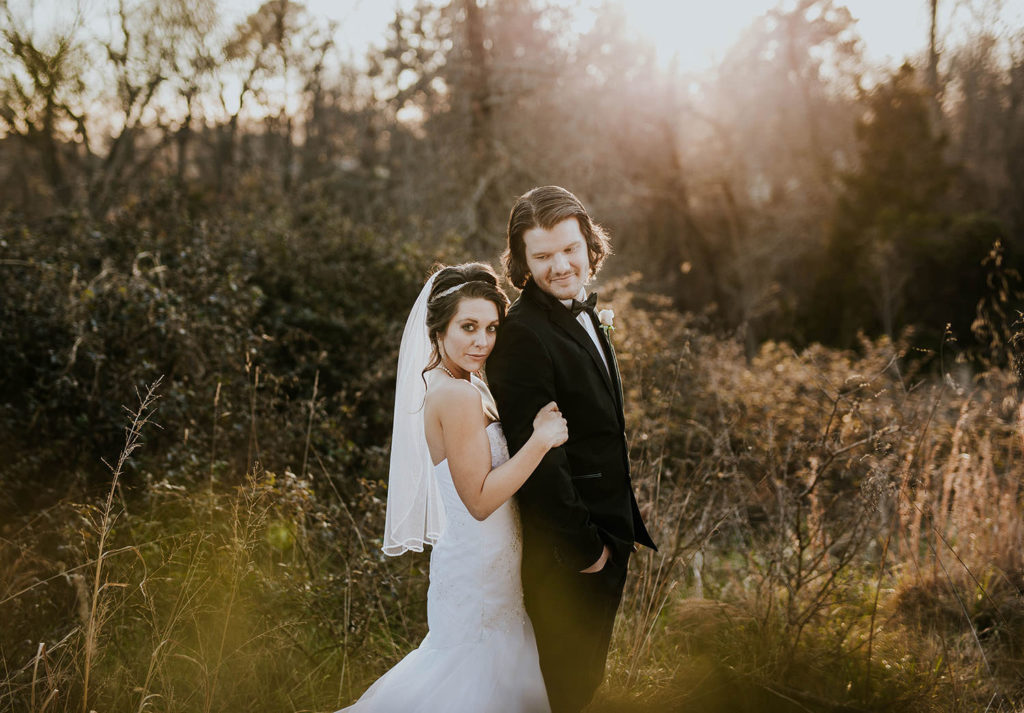Choosing the perfect wedding venue is one of the most important decisions you will make when planning your big day. The venue sets the tone for your entire wedding and can make or break the overall experience for you and your guests. From the budget and guest count to the location and amenities, there are many factors to consider when selecting the perfect wedding venue. In this guide, we will walk you through the process of selecting the ideal venue for your special day, covering everything from budget and guest count to location and amenities, style and ambience, booking and contract, and more. With this information, you will be able to make an informed decision and ensure that your wedding is exactly what you have always dreamed of.
1. Budget and Guest Count
How to determine your budget for the venue
Determining your budget for the wedding venue is an important step in the planning process. It will help you narrow down your options and ensure that you are not overspending on the venue. Here are some steps to help you determine your budget for the wedding venue:
- Determine your overall wedding budget: Before you can set a budget for the venue, you’ll need to determine your overall wedding budget. This should include all of the expenses associated with your wedding, such as the venue, attire, flowers, photography, and more.
- Assign a percentage of your budget to the venue: Once you have your overall budget, you can assign a percentage of it to the venue. A general guideline is to allocate around 30-40% of your budget to the venue, but this will vary depending on your specific circumstances.
- Research venue prices: Research the prices of different venues in your area to get a sense of what you can expect to pay. Look at venues of different sizes, styles, and amenities to get a broad sense of prices.
- Factor in additional costs: Keep in mind that there may be additional costs associated with the venue, such as catering, lighting, audio-visual equipment, and more. Be sure to factor these costs into your budget.
- Adjust your budget as needed: Once you have a rough idea of your budget for the venue, you can adjust it as needed based on your specific circumstances. Be prepared to make some compromises, but also remember that your wedding day is a special day and you should not skip your dream venue just because of the budget.
By following these steps, you’ll be able to determine a budget for your wedding venue that is realistic, taking into account all the necessary expenses and allowing you to stick to your overall wedding budget.

How to determine the number of guests you will be inviting
Determining the number of guests you will be inviting is an important step in the planning process as it will help you select a venue that can accommodate all of your guests comfortably. Here are some steps to help you determine the number of guests you will be inviting:
- Create a guest list: Start by creating a preliminary guest list of everyone you would like to invite to your wedding. This should include family, friends, and any other special guests.
- Prioritize your guest list: Once you have your preliminary guest list, prioritize the guests based on their relationship to you. This will help you identify the most important guests who you absolutely want to invite and those who you may have to consider not inviting in case of space constraints.
- Consider the capacity of your venue: Keep in mind that different venues have different capacities, so you’ll want to select a venue that can comfortably accommodate all of your guests.
- Take into account any restrictions: Some venues may have restrictions on the number of guests they can accommodate, so be sure to take this into account when determining your guest list.
- Finalize your guest list: Once you have taken all of these factors into account, finalize your guest list. Keep in mind that it’s better to err on the side of caution and invite fewer guests than you think you’ll need, as it’s easier to add guests than to subtract them.
- Be prepared to make some compromises: it is not uncommon to have to make some compromises on the guest list, such as cutting down on the number of guests or choosing a smaller venue to accommodate the number of guests.
By following these steps, you’ll be able to determine a realistic number of guests that you can invite to your wedding and select a venue that can comfortably accommodate all of them.

2. Location and Accessibility
Considerations for the location of the venue
Location is an important consideration when choosing a wedding venue. Here are some factors to consider when evaluating the location of a potential venue:
- Proximity to the city centre: If many of your guests will be travelling from out of town, you’ll want to choose a venue that is easily accessible and close to the city centre. This will make it easier for your guests to find and will also allow them to enjoy the city while they’re in town.
- Availability of transportation: Consider the availability of public transportation, such as buses and trains, as well as the proximity of major highways and airports. This will make it easier for your guests to get to and from the venue.
- Parking availability: If the venue does not have its own parking, or the parking is limited, consider nearby public parking options or hire a valet service to help your guests park their cars.
- Weather considerations: If you are planning an outdoor wedding, take into account the weather conditions of the location and season you plan to hold your wedding.
- Venue’s proximity to the hotel: If you plan to have guests stay overnight, it is convenient to choose a venue that is close to the hotel your guests will be staying in.
- Cultural and religious significance: Consider if the location holds any cultural or religious significance for you or your partner.
By considering these factors, you can ensure that the location of your wedding venue is easily accessible and convenient for your guests, while also being a meaningful and special place for you and your partner.

Accessibility for guests with disabilities
Accessibility is an important consideration when choosing a wedding venue, especially if you have guests with disabilities. Here are some factors to consider when evaluating the accessibility of a potential venue:
- Physical accessibility: Make sure the venue is wheelchair accessible and that there are no obstacles or barriers that would prevent guests with disabilities from accessing the venue. This includes ramps, elevators, and accessible restrooms.
- Hearing and visual accessibility: Check if the venue has any accommodations for guests with hearing or visual impairments, such as assistive listening devices or braille signage.
- Service animals: Confirm if the venue welcomes service animals and if they have any policies or procedures in place to accommodate them.
- Parking accessibility: Check if the venue has designated parking spaces for guests with disabilities and if it is close to the entrance of the venue.
- Consider hiring an accessibility consultant: If you’re unsure about the accessibility of the venue, consider hiring an accessibility consultant to assess the venue and provide recommendations for improvements.
- Communicate with your guests: Reach out to your guests with disabilities and ask them about their specific needs, and make sure to accommodate them as much as possible.
By considering these factors, you can ensure that your wedding venue is accessible to all of your guests, including those with disabilities. This will make your wedding day more inclusive and enjoyable for everyone.

3. Amenities and Services
Types of amenities offered by different venues
Different wedding venues offer a variety of amenities to make your special day as memorable and enjoyable as possible. Here are some types of amenities that you may find at different wedding venues:
- Catering: Many venues offer in-house catering services, providing a wide range of menu options and services such as cake cutting and bar service.
- Lighting and Audio/Visual: Some venues offer lighting and audio/visual equipment, such as stage lighting, sound systems, and projectors, which can be used to enhance the ambience and atmosphere of your wedding.
- Decorations: Some venues offer decorating services or have in-house decorators that can help you create the perfect atmosphere for your special day.
- Event planning and coordination: Some venues have event planners and coordinators on staff who can help you plan and organize your wedding, including managing vendors and overseeing the setup and breakdown of your event.
- Accommodations: Some venues offer overnight accommodations for you and your guests, such as on-site hotels or vacation rentals, which can be convenient for out-of-town guests.
- Outdoor spaces: Some venues have outdoor spaces, such as gardens or lawns, that can be used for ceremonies or receptions.
- Speciality services: Some venues may offer unique services such as spa and salon services, horse-drawn carriage rides, or even fireworks displays to make your wedding day even more special.
By considering these amenities, you can ensure that your wedding venue meets all of your needs and provides the services and amenities that will make your special day perfect.
Types of services offered by different venues (e.g. event planning, coordination)
Different wedding venues offer a variety of services to help make your special day as memorable and enjoyable as possible. Here are some types of services that you may find at different wedding venues:
- Event Planning: Some venues offer event planning services, which can include coordinating vendors, managing timelines, and overseeing the setup and breakdown of your event.
- Coordination: Some venues have coordinators on staff who can help you plan and organize your wedding, including managing vendors and overseeing the setup and breakdown of your event.
- Day-of coordination: Some venues offer day-of coordination service, where they will be on-site to coordinate all aspects of the day, from vendor setup to timelines, to ensure everything runs smoothly.
- Venue setup and breakdown: Some venues offer setup and breakdown services, which can include arranging tables, chairs, and other rental items, as well as cleaning and maintaining the venue before and after the event.
- In-house catering: Some venues offer in-house catering services, providing a wide range of menu options and services such as cake cutting and bar service.
- Event equipment rental: Some venues also offer event equipment rental services such as tables, chairs, linens, etc.
- Assistance with vendor selection: Some venues have a list of preferred vendors they work with and can help you with selecting vendors such as florists, photographers, and more.
By considering these services, you can ensure that your wedding venue provides the support you need to make your special day perfect.

4 Style and Ambiance
Different types of wedding venues
There are many different types of wedding venues to choose from, each with its own unique style and atmosphere. Here are some common types of wedding venues:
- Outdoor venues: Outdoor venues include gardens, parks, beaches, and other natural settings. Outdoor venues offer a beautiful natural backdrop and can be a great option for couples looking for a more casual and relaxed atmosphere.
- Indoor venues: Indoor venues include banquet halls, hotels, museums, and other similar venues. Indoor venues provide a more traditional and elegant atmosphere and are great for couples who want a more formal and sophisticated wedding.
- Beach venues: Beach venues are typically located on or near the beach, and offer a beautiful coastal setting for your special day. Beach venues are great for couples who want a more laid-back and tropical atmosphere.
- Garden venues: Garden venues are typically located in gardens, arboretums, or other similar settings, and offer a serene and natural setting for your wedding. Garden venues are great for couples who want a more natural and intimate atmosphere.
- Barn and Farm venues: These venues are typically located on a farm or in a barn and offer a rustic, natural setting for your wedding. These venues are great for couples who want a more rural and down-to-earth atmosphere.
- Castle, Mansion or Historical Venue: These venues are typically grand, historic buildings such as castles, mansions or stately homes. They offer a unique and elegant atmosphere and are great for couples who want a more formal and luxurious wedding.
- Industrial or Modern Venue: These venues are typically located in industrial or modern buildings, such as factories, warehouses, or lofts. They offer a unique and contemporary atmosphere and are great for couples who want a more modern and trendy wedding.
By considering these different types of wedding venues, you can choose the one that best matches your personality and style, and create the perfect atmosphere for your special day.
How to choose a venue that reflects the style and ambience you want for your wedding
Choosing a wedding venue that reflects the style and ambience you want for your special day is an important step in the planning process. Here are some tips to help you choose a venue that reflects your style and ambience:
- Consider your style and theme: Think about the style and theme of your wedding and choose a venue that complements it. For example, if you’re planning a rustic wedding, a barn or farm venue may be a good fit.
- Look at the venue’s decor: Pay attention to the decor of the venue, such as the lighting, colour scheme, and overall aesthetic. The decor should match the overall style and theme of your wedding.
- Think about the ambience: Consider the ambience of the venue, such as whether it feels intimate or grand, casual or formal, and whether it aligns with your desired atmosphere.
- Schedule a visit: Schedule a visit to the venue and see it in person. This will give you a better sense of the space, the light, and the overall feel of the venue.
- Imagine your wedding day: Imagine your wedding day at the venue, and picture how your guests will experience the atmosphere, how the decorations will look, and how the lighting will be.
- Flexibility: Choose a venue that is flexible and can adapt to your specific needs and requirements.
- Communicate with the venue: Communicate with the venue and ask them if they can accommodate any special requests you may have, such as lighting or decor changes, to make the venue align with your desired style and ambience.

5. Booking and Contract
How to book a venue
Booking a wedding venue is an important step in the planning process. Here are some steps to help you book a wedding venue:
- Research venues: Research different venues in your area, taking into account factors such as budget, guest count, location, amenities, and style.
- Check availability: Contact the venues you’re interested in and ask about their availability on your wedding date. Be sure to also inquire about their capacity and if they are willing to host your wedding on your preferred date.
- Schedule a visit: Schedule a visit to the venue and see it in person. This will give you a better sense of the space, the light, and the overall feel of the venue.
- Negotiate the terms: Once you’ve found a venue that meets your needs, negotiate the terms of the contract. This may include the rental fee, deposit, and payment schedule, as well as any additional services or amenities you may need.
- Sign the contract: Once you’ve agreed to the terms, sign the contract with the venue. Be sure to read the contract carefully and ask any questions you may have before signing.
What to look for in a contract with a venue
When it comes to signing a contract with a wedding venue, here are some important things to look for:
- Cancellation and refund policy: Understand the policy in case you need to cancel your event, and also in case of any unforeseen circumstances such as bad weather.
- Inclusions and exclusions: Make sure you understand what is included in the rental fee, such as tables, chairs, linens, and any other equipment, and what is not included.
- Set up and breakdown times: Understand what time you are allowed to access the venue for setup and breakdown and if there is any additional fee for that.
- Food and Beverage: Understand what is included in the food and beverage package, if any, and if there are any restrictions on bringing in outside vendors.
- Liability and insurance: Make sure the venue has liability insurance in case of any accidents or injuries.
By following these steps, you can book a wedding venue that meets your needs and sign a contract that includes all the important terms and conditions.
Conclusion
Choosing the perfect wedding venue is an important step in the planning process. It sets the tone for your special day and can make or break the overall experience for you and your guests. It is important to take the time to research different venues, taking into account factors such as budget, guest count, location, amenities, and style. It’s also important to schedule a visit to the venue, so you can get a better sense of the space, the light, and the overall feel of the venue. Once you’ve found a venue that meets your needs, it’s important to negotiate the terms of the contract, including the rental fee, deposit, and payment schedule, as well as any additional services or amenities you may need. Make sure to read the contract carefully and ask any questions you may have before signing. With the right venue, your wedding day will be a truly memorable experience for you and your guests.





